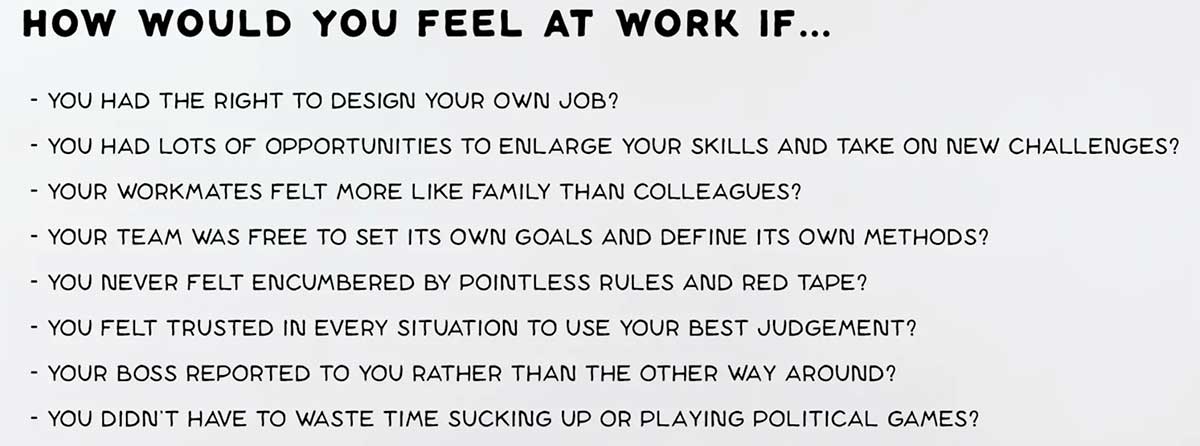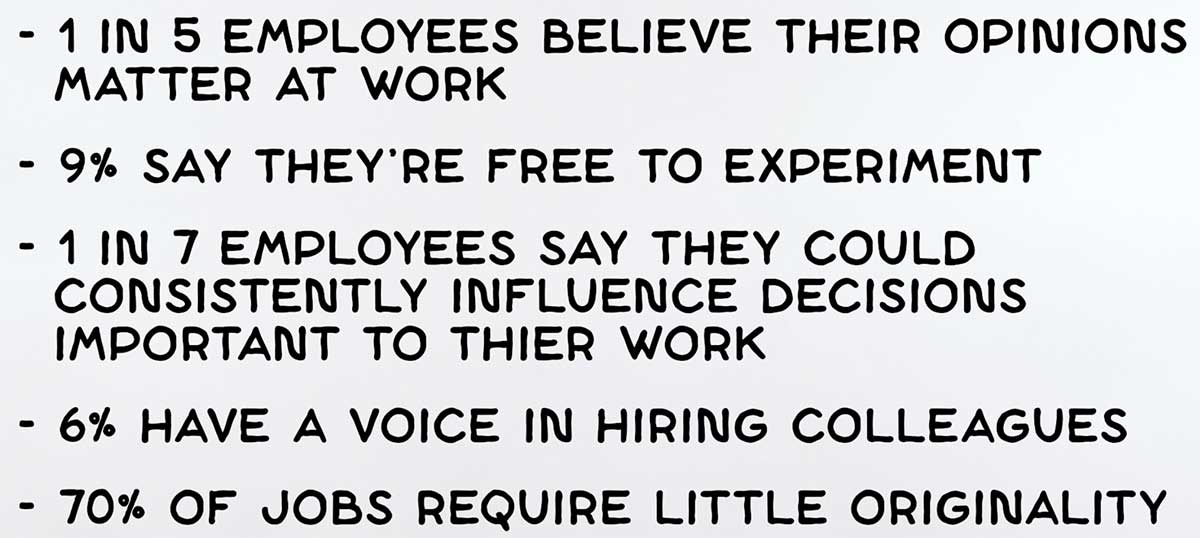Old news. COVID is, has and will continue to recreate the way corporations to small businesses are working.
Leaders struggle to lead remotely.
Connection amongst team members is a worry.
Home life has become work life.
Broken and incongruent lines of communication strain the leaders message
Who are teams listening to now?
Now what?
As conversations are unfolding around WFH (Work From Home), the challenges and opportunities, there is a conversation that I have yet to see take off in the media.
How has and will leadership change?
In order for workplace wellness (healthy, mindset and productivity) and healthy relationship systems (trust, collaboration, positivity) to evolve, leadership MUST change. The structure of corporations must change. Where the data, information and content for decisions to be made from must change.

Here are my thoughts based on conversations within the innovative thought leader space, who, I feel have been mostly silenced due to their opposing opinions of the industrial age of leadership, the command and control: a fear based, leadership style.
An old system that has not produced much in the way of effective leaders.
And by effective I mean a leader who has genuinely moved, even transformed the meaning of work and how people perform in their roles promoting a healthy workplace. A place people enjoy going to work. Feel heard, connected and involved in something meaningful. Simple really.
Name me one leader that takes a clear stand for and with their employees, that has led in the last 3 decades?
And if you have a leader in mind, please share their leadership philosophy in a way that the rest of us can understand your view. Thank you.
For me, evidence of the lack of effective leadership is the scarcity of leaders we in the professional development industry struggle to find and so we continuously point to Steve Jobs, Jeff Bezo, Elon Musk as most recent personalities in leadership.
These leaders, in their own personal style, have embraced accessing the knowledge from their teams, customers and stakeholders in order to build a superior product that delivers beyond a typical leader’s vision.
What I see happening inside the work I do in partnering with leaders is the movement coaching enables to increase positivity and connectedness and improve productivity. Even in these WFH conditions.
Inside these coaching experiences I continuously noticed that these teams have the capability and even desire to lead themselves through their aligned purpose and roles, once we’ve worked out the roadblocks that lack of emotional intelligence and communication skills create. Inside these trust building conversations there is a clearing for openness and co-creating anything as a team.
The team begins to redefine the role of leaders from ‘governing the team’ to’ being a team contributor’, becoming part of the intelligence, wisdom and creativity of the team/system, it opens the possibility for more information to be shared, trust to be elevated, productivity and communication to increase and role clarity and ownership to no longer be breaking down the teams performance and outputs.
It is here that I get curious about leadership and seek the conversations that are happening on the front lines, middle lines and in the teams of organizations across many different industries and now cultures.
It’s time for us to see the emerging team. Not just an emerging leader.
The solo leader way is not working.
We have spent decades in the solo leadership quest with little to no real change in organizations.
It’s time to engage the wisdom of teams as a system.
If you would like further proof of leadership theories that have existed for hundreds of years. Here’s a link to an article from 1990 which is outlining the evolution of leadership based theories and the skepticism that still exists on their effectiveness. https://journals.sagepub.com
And even in the last 2 decades, authors have only recreated models or mixed models together to form their own ‘formula for leadership effectiveness” to declare their own.
Many Universities are dictating from outdated material and no new leadership messages or movements have been driven from these outdated institutions.
I’m concerned leadership has not moved organizations in the way their theories declare their supposed to. So now we have a population of leaders who feel like failures, when really they had no chance to begin with.
In fact, there is more and more evidence pointing to the case that all this leadership theory has built up highly bureaucratic businesses with a mostly unhappy workforce. What kind of ‘effective leadership’ is that?
Yet leadership, as an individual experience is still being written about, focused on.
Why?
It’s time for the real conversation and real lessons to be taught and healthy teams to be nurtured and emerge.
COVID has given us the opportunity to do things differently. To look at what’s not working and rebuild and tap into what is possible and worth exploring as far as building healthy organizations.
The idea of emerging teams stands to be the simple solution that can transform your business and your people involved and to meet the ever increasing speed of change.
Let’s not add more complexity. Let’s create more ease and contentment in the workplace.
Coaching the emerging team looks like taking the intelligence, wisdom and creativity that exists in each of us as individuals and cultivating our combined intelligence when we bring the “me” to “teams”.
I have been calling this shared leadership. Where no one person needs to run a whole team as the team aligns within itself to determine the ownership and accountability of the tasks that need to be completed and all the nuances that are part of the completion.
Need more proof?
Recently I’ve begun to read the book by Gary Hamel and Michele Zanini “Humanocracy” which outlines how bureaucracies hold back innovation and the business intelligence of the whole organization by hushing the employees and weighting the management rungs with a plethora of leaders.

With these stats being disclosed by Hamel and Zanini and others like Lencioni, Decthmer & Chapman, why are we continuing to build workforces that are underperforming, unhappy and unwell?
What do organizations expect from these experiences in their workforce?
If you are interested in bringing the emerging teams program into your organization, please send us an email to start the conversation.

